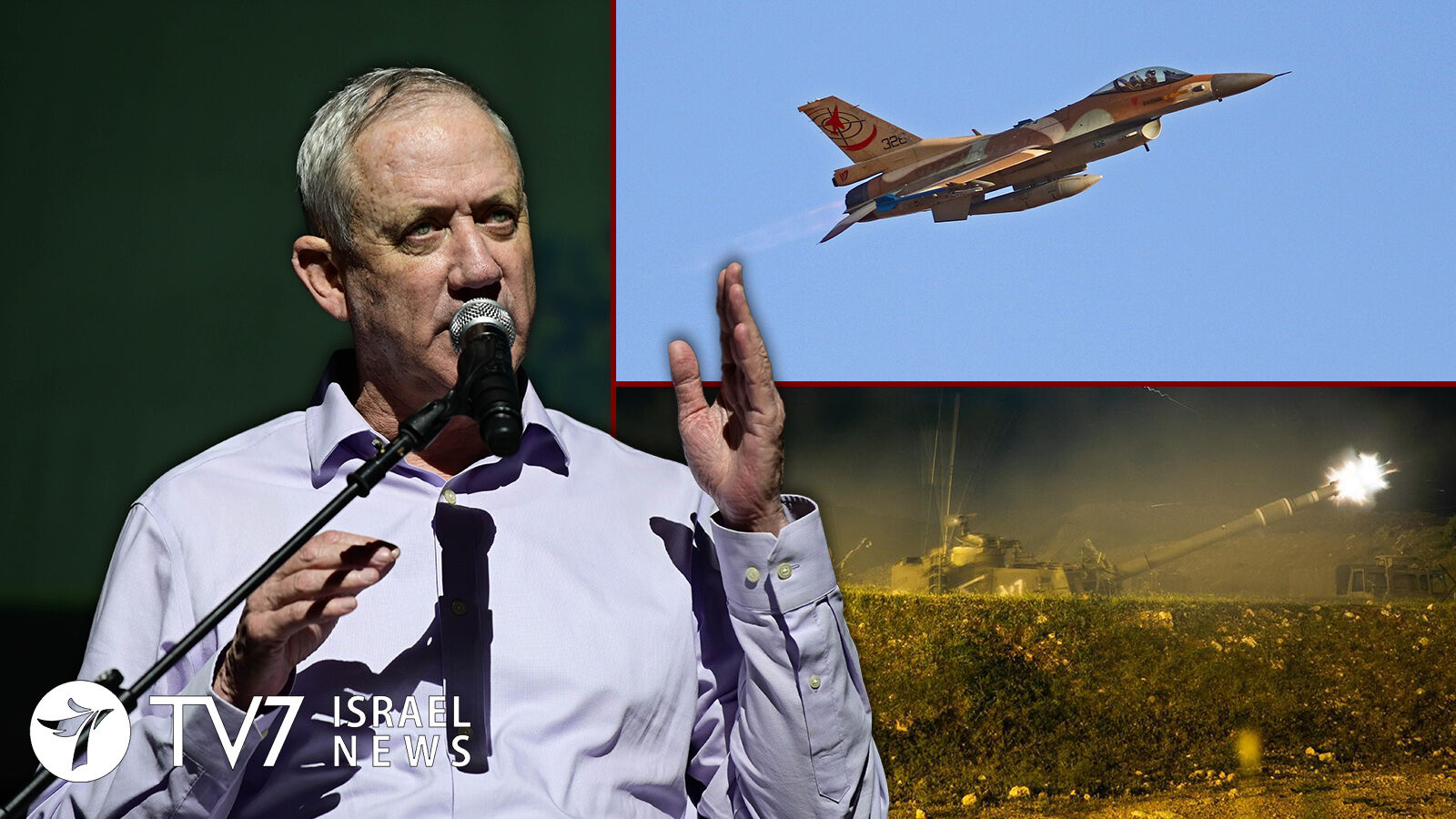The Israeli Defense Minister cautioned the neighboring northern Arab Republic there will be further retaliation if more rockets are launched from its territory, following IDF retaliation at a launch site in response to an overnight attack yesterday.
By Erin Viner
“The State of Israel demands that the Lebanese government take responsibility for what happens on its territory,” Minister Gantz stated during a celebratory gathering with Druze leaders at the tomb of the Prophet Jethro in northern Israel.
“If terrorism and violence continue, we will know to use the necessary force against the right targets,” he stressed, according to a statement issued by the Israeli Ministry of Defense (IMoD).
The missile fired from Lebanon landed in an open area near Kibbutz Matzuva in the Western Galilee, in apparent spillover violence related to Palestinian-Israeli confrontations at Jerusalem’s Al-Aqsa Mosque. There were no reported injuries or damage.
According to news agencies linked with the Iranian-backed Hezbollah terror group, the rocket had been launched from territory between the Lebanese towns of Qlaileh and Maaliyeh southeast of Tyre.
The Israeli military responded with artillery fire targeting “open spaces in south Lebanon near the launch area, and also at an infrastructure target,” said the IDF, which also released a video and photographs of the retaliatory strike.
The IDF announced on Twitter that it fired dozens of shells at Lebanon. According to a later statement from the Lebanese Armed Forces (LAF), the IDF launched 50 artillery shells at several locations in south Lebanon. The LAF also said that two additional rockets aimed at Israel were discovered and defused.
Palestinian groups in Lebanon are behind the rocket attack, IDF Spokesman Brigadier General Ran Kochav said while speaking to Israel’s Kan Radio, adding, “We believe … this is linked to the Muslim holy month of Ramadan and the riots on the Temple Mount.”
He was referring to clashes over the past two weeks between Palestinians and Jerusalem police at the Al-Aqsa Mosque at a complex known as Haram al Sharif by Muslims, built on the ruins of both Biblical Temples. The area is called Temple Mount by Israel, and considered by the Jewish People as the holiest site in the world, also revered to Christians. The compound is Islam’s third most sacred site after Mecca and Medina; and the Al-Aqsa Mosque area is the most sensitive site in the generations-old conflict.
While small Palestinian factions in Lebanon have fired sporadically on Israel in the past, major flare-ups along the frontier are rare. The last escalation was in 2021 when 19 rockets launched from Lebanon were either intercepted by Israel’s Iron Dome missile defense system or fell in uninhabited areas near Har Dov; also prompting retaliatory IDF artillery strikes on territory from which the attack originated. While the majority of the attacks in recent years have been attributed to Palestinian factions in Lebanon, it is nevertheless unlikely that the terrorists would engage in the activity without at least tacit approval by the powerful Hezbollah militia that controls southern Lebanon.
The demarcation line between the two countries has been largely quiet since a 2006 war between Israel and the Iran-backed Hezbollah terror group, which is heavily entrenched in southern Lebanon and armed with an arsenal of advanced rockets.
The head of the United Nations Interim Force In Lebanon (UNIFIL) Major General Aroldo Lázaro Sáenz issued a statement on Twitter confirming the firing of the rocket at Israel yesterday, while urging “calm and restraint in this volatile and ongoing situation.”
In related developments, the Israeli police announced the successful thwarting of a major weapons smuggling attempt linked to Hezbollah. According to the statement, security forces confiscated 100 grenades of various kinds and two rifles intended for future terror attacks against Israelis.
“Hezbollah obtains weapons while ensuring that at least some of them are kept for terrorist activity, thus trying to create an infrastructure for terrorist attacks within Israel’s territory,” said the police, stressing, “the fact that grenades were seized – an unusual weapon that was never uncovered during smuggling raids in the past – raises the suspicion that they were intended for attacks in crowded civilian places.”
The statement further praised officers “who operate throughout the Northern District, bordering Lebanon, Syria and Jordan, and these elite fighters work with the rest of the Central Unit police all year round… to prevent and thwart smuggling of weapons and dangerous drugs into Israel.”
It was revealed that earlier this week Israeli Border Police exposed an attempt to smuggle an illegal weapons trove valued at an estimated $24 million through a crossing from neighboring Jordan.
